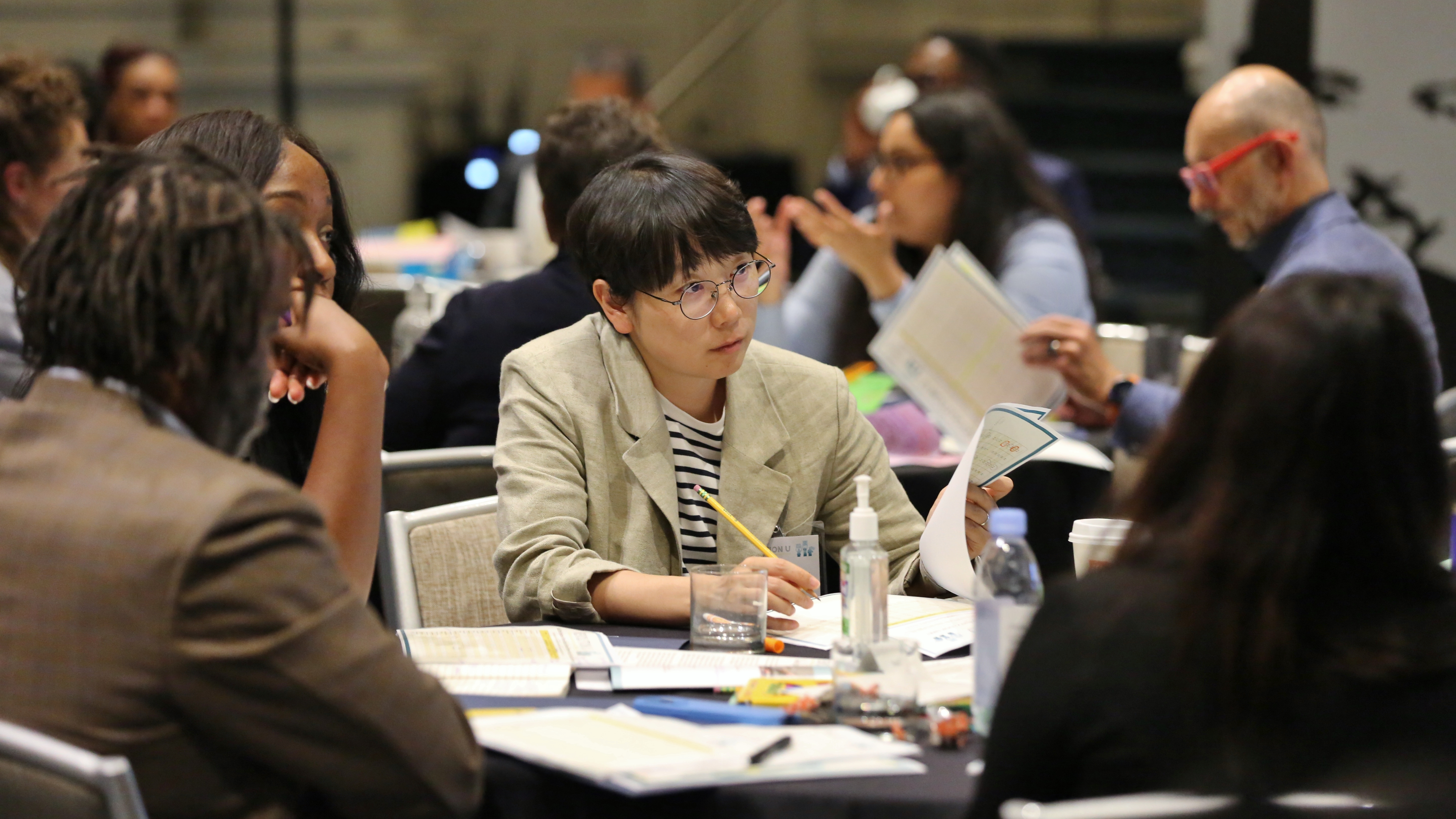New Report by the Samuel DeWitt Proctor Institute Delves into Racism, Whiteness, and Privilege
FOR IMMEDIATE RELEASE
Contact: Brandy Jones
Telephone: 848-932-0788
Email: brandy.jones@gse.rutgers.edu
New Brunswick, NJ., February 25, 2021— The Samuel DeWitt Proctor Institute for Leadership, Equity, and Justice (Proctor Institute) is proud to announce the release of a new report that explores the current racial climate in the United States and its historical context.
In an effort to create meaningful discussions on issues related to the injustices that Black communities face, the Proctor Institute sponsored two panel discussions in June 2020 that addressed racism, Whiteness, and privilege in the current socio-political climate. With over 250 participants and eight fantastic panelists, the two discussions, moderated by Visiting Scholar Tammy Smithers, created space for candid conversations on a range of social justice topics including allyship vs. accompliceship, the inherent issues with White privilege, and what all supporters of the Black Lives Matter movement can do now to help in the eradication of systemic oppression towards Black people.
Tammy Smithers continues this conversation on institutionalized oppression in her report, "Whiteness and Privilege: Lifting the Veil on Systemic Racism," as she contextualizes and recounts what was discussed during the panel events. The report engages historical and contemporary literature to make sense of 21st Century law and order and notes how it operates in an inherently biased way, which is particularly harmful to Black communities and communities of color.
“Implicit bias, coupled with White fragility, continues to work against the liberation of Black people. Racism is a disease, a mental illness, that terrorizes, demonizes, dehumanizes, and criminalizes Black people in the U.S. My personal mission is to disrupt the status quo, and through this work, I endeavor to amplify the voices of the unheard and the unseen," Smithers said. "I did not choose this path towards my research, it chose me."
The report centers the activism and social unrest that is already underway. Movements such as Black Lives Matter (BLM) and Defund the Police are explained and praised for their work and advocacy for the dismantling of systemic racism. However, the report also notes that White privilege can manifest itself in this kind of activism.
For one of the panelists Brandon Mack, lead organizer for the BLM Houston chapter, White privilege manifests itself within activism differently among groups. We see time and time again that with certain protests in the United States, acts of rebellion are met with respectful interaction with police officers. Mack says, “We all know that we have a First Amendment right to protest. But yet, I see what happens when protests are led by Black Lives Matter and other movements, where they center Black people, the response is not the same.”
The report also scrutinizes the term ‘allyship’ and the innate White privilege that this term holds. This privilege encompasses the ability to be able to step in and out of the fight whenever one finds it convenient. For people of color, this same privilege is not extended, as their bodies are constantly policed. The report encourages the shift from the term ‘ally’ to ‘accomplice.’ Mack explains, “If we go to jail, we both go to jail. We both feel the same sense of loss. We both feel the same sense of win. We are both in it because we’re accomplices.”
The report concludes with recommendations for bringing about racial solidarity and social justice. These revolve around themes of dismantling and disrupting White supremacy, decentering Whiteness and centering Black lives, supporting police reform, and acknowledging the lack of a finish line in regard to this activist work.
“We are proud to sponsor Tammy Smithers important work around Whiteness, racism and privilege and hope that her voice inspires readers to act.” shared Marybeth Gasman, the Samuel DeWitt Proctor Endowed Professor of Education & Distinguished Professor in the Rutgers University Graduate School of Education.
Smithers notes the recent shift in our nation with the election of the new administration, and leaves readers with three questions to keep in mind for the new era: 1) How can systemic strongholds release the proverbial knee off the neck of Black Americans?, 2) What next steps towards racial reckoning and healing should be taken? and 3) Do you have the courage, capacity, and resilience to facilitate change?
The report can be accessed here.
About the Samuel DeWitt Proctor Institute for Leadership, Equity, and Justice
The Samuel DeWitt Proctor Institute for Leadership, Equity, and Justice (Proctor Institute) is a national center that focuses on issues of leadership, equity, and justice within the context of higher education. It brings together researchers, practitioners and community members to work toward the common goals of diversifying leadership, enhancing equity, and fostering justice for all. The Proctor Institute is located at Rutgers University—New Brunswick, in the Graduate School of Education and houses the Rutgers Center for Minority Serving Institutions (CMSI). Learn more at https://proctor.gse.rutgers.edu.

